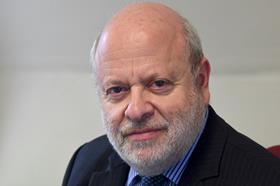Displacement activity leads me to concentrate on trivia rather than gigantic issues which leave me helpless. I would like to say that we all do this, but that is another aspect of displacement activity – trying to share the responsibility when the weight feels too heavy. So I will not try to accuse anyone else of similar behaviour.

The most obvious form of displacement comes when lawyers appear in the newspaper because they have fallen foul of the law. I follow these cases closely, probably because I am a lawyer myself, and lawyers don’t feature so often. There are some very sensational examples, which I can spend ages reading about. But the serious cases I glance over because they make me feel too uncomfortable – what can I do to make things any different?
To start at the sensational end, I am sorry to say that there are two elements to them from my perspective: first, they involve a huge dollop of schadenfreude, which is not a good look; and second, they mainly involve American lawyers. I don’t know why the really intriguing cases of lawyer behaviour involve Americans – maybe because there are more of them, and maybe because of the truth of the old saying, ‘only in America …’.
The case which attracted my attention this week, and maybe yours too, was that of South Carolina lawyer, Alex Murdaugh. In a nutshell – and it is a large nutshell – Mr Murdaugh’s wife and son were tragically shot dead three months ago, which continues to be an unsolved mystery. Three months later he resigned from his law firm on the claim that he had misappropriated funds. Then, the following day, he was himself shot in the head at the roadside, but survived. Now police claim, and Mr Murdaugh’s lawyers admit, that he arranged for another man to shoot him so that his surviving son would be able to collect the insurance money. Mr Murdaugh meanwhile entered treatment for drug addiction.
There are other details which cannot fit in the nutshell. I should not follow such cases so closely.
There was another case a few months ago, which similarly took up too much of my time. You may remember the McCloskeys. They are a husband and wife, both personal injury lawyers, who drew guns on their front lawn when a social justice demonstration walked past their house (‘a spectacular, $1.15m (£880,730) Renaissance-style palazzo, built by an Anheuser-Busch beer fortune heiress in the early 1900s’) in St Louis Missouri. The demonstrators were on their way to the former mayor’s house in protest at her actions following the death of George Floyd the previous month, but walked through a private road on their way. That is when the McCloskeys appeared with a rifle and a pistol respectively, and shouted at the demonstrators. No shots were fired, but President Trump and other Republicans supported the McCloskeys, and Democrats generally supported the demonstrators.
The latest news is that a few months ago the McCloskeys pleaded guilty to misdemeanour charges and agreed to give up the guns they had used on that fateful day. As the BBC pointed out: ‘Because the charges are misdemeanours, the personal injury lawyers can keep their law licences and continue to own firearms.’
I have wasted too much time on these cases.
You may have seen that a few days ago, a year after being detained in Minsk by unidentified men wearing ski masks, Maxim Znak, a lawyer in Belarus, was sentenced to 10 years in jail. He was the lawyer for the former candidate for the Belarusian Presidency, Svetlana Tikhanovskaya. He was also involved in peaceful civil society politics. Maxim Znak is not the only lawyer who has been victimised by the Belarusian authorities. There is a string of them who have been representing either opposition politicians, or citizens caught up in the protests following the disputed Presidential election. International legal organisations, including the Law Society, have been protesting about the government’s actions, without effect.
Maxim Znak’s fate is terrible. The fate of the Afghan lawyers and judges left behind after the Western retreat from Afghanistan is terrible. The fate of Chinese lawyers who take up cases of which the authorities disapprove is terrible. But what can we do about our colleagues, other than have our professional organisations write letters?
I have obviously not lived in another age, and so I don’t know whether an overpowering sense of hopelessness is common to every age when citizens contemplate the state of the world. But it is the hopelessness which causes me to read stories which have sensational details, in place of contemplating the fate of our brother and sister lawyers who are being crushed by terrible systems, and whom no-one seems able to save.
Jonathan Goldsmith is Law Society Council member for EU matters and a former secretary general of the Council of Bars and Law Societies of Europe. All views expressed are personal and are not made in his capacity as a Law Society Council member, nor on behalf of the Law Society































2 Readers' comments